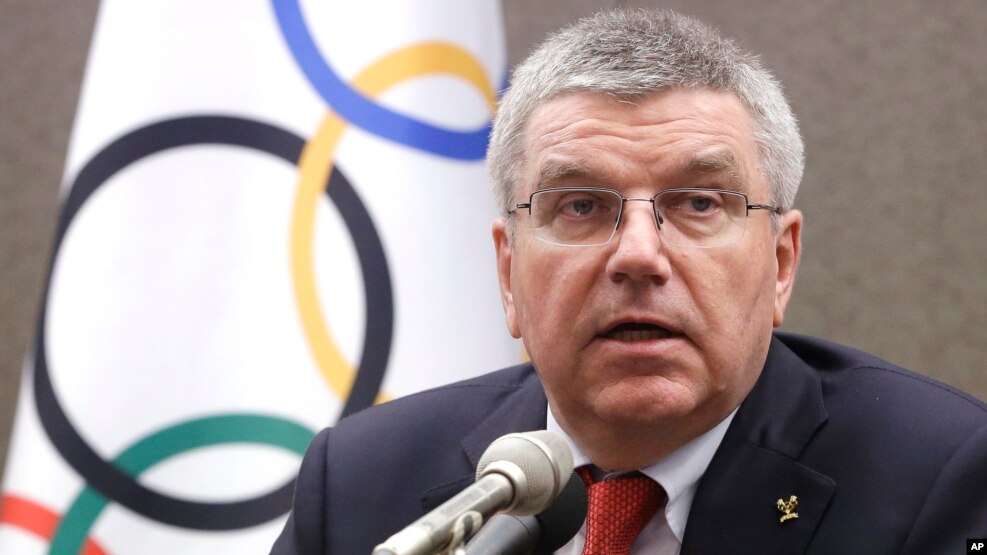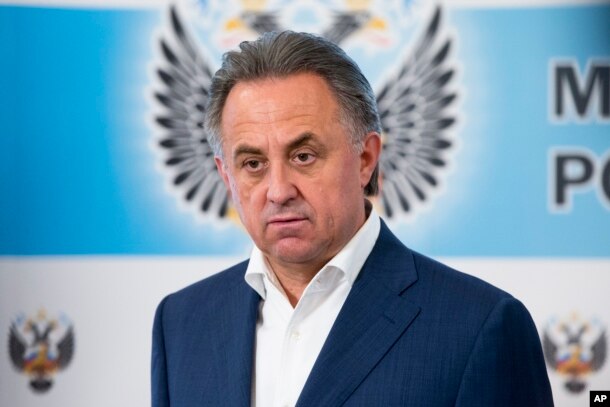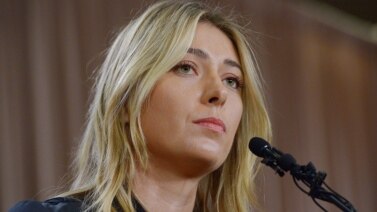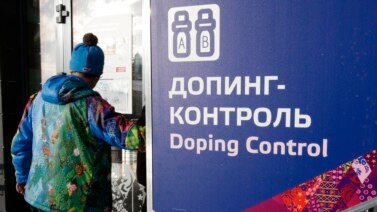
The International Olympic Committee, known as the IOC, will not ban all Russian athletes from the Rio de Janeiro Olympic Games in August.
The World Anti-Doping Agency, also known as WADA, had called for banning Russian athletes from the Rio Games.
WADA called for the ban after confirming that the Russian government worked to cover up doping among its athletes. It said Russian athletes in more than 30 sports gained competitive advantages from doping. And the Russian government switched urine samples allowing athletes to pass doping tests.
IOC president Thomas Bach announced Sunday that he would not issue a collective ban of Russian athletes. He was concerned that innocent athletes would not be allowed to compete in Brazil.
Bach said: “you have to be able to look into the eyes of the individual athletes concerned by your decision.”
The IOC said it will pay extra attention to the test results of all of the Russian athletes in Rio.

Also, individual sport federations around the world will have the right to ban an athlete from competition if that athlete has failed a drug test. For example, the IAAF, the organization that manages international track and field events, has already banned many Russian track and field athletes.
The Russian sports minister Vitaly Mutko said he was “grateful” that the IOC did not ban the entire Russian team. He said the organization made its decision with “unity of world sport and the unity of the Olympic family” in mind.
Last week, Russian President Vladimir Putin said officials named in the WADA report would be suspended. Sports minister Mutko and his deputy are both named in the WADA report.
Around the world, sports organizations criticized the decision by the IOC.
The head of the U.S. Anti-Doping Agency said the IOC “refused to take decisive leadership.”
A British IOC member said the “IOC has passed the buck.”
Other Olympic experts are concerned about the future of a Russian athlete, Yuliya Stepanova. She provided evidence that helped break WADA's case against Russia.
Stepanova will now have to compete as a member of the Russian team if she wants to participate in the Olympics.
I'm Dan Friedell.
Dan Friedell adapted this story for Learning English based on information from VOANews.com and Associated Press. Hai Do was the editor.
Do you think the IOC made the right decision? We want to know. Write to us in the Comments Section or on our Facebook page.
Words in This Story
ban - v. to forbid (someone) from doing or being part of something
doping - n. the illegal use of a drug (such as a steroid) to improve an athlete's performance
grateful - adj. feeling or showing thanks
switch - v. to change or replace (something) with another thing
pass the buck - v. to avoid a responsibility by giving it to someone else


